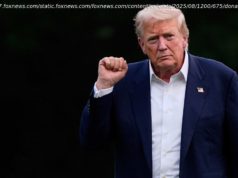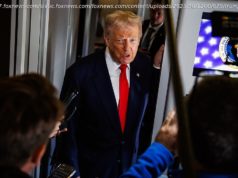 As US President Barack Obama prepares to leave office on January 20, here are 10 things his presidency may be remembered for.
As US President Barack Obama prepares to leave office on January 20, here are 10 things his presidency may be remembered for.
Multimedia · User Galleries · News in Pictures Send us your pictures · Send us your stories
London — British Prime Minister Theresa May on Tuesday laid out her Brexit priorities and negotiating aims for the first time during a keynote speech in London.
Here are the key points.
SINGLE MARKET: May spelled out that Britain will have to leave the European Union’s single market in order to restrict immigration from the EU.
«What I am proposing cannot mean membership of the single market,» May said, adding however that she wanted British companies to have «maximum freedom to trade with and operate within European markets».
IMMIGRATION: The thorny issue of Britain’s borders will be the keystone of the government’s negotiating policy, with May’s insistence on full control over immigration set to shape strategy across the board.
«Brexit must mean control of the number of people coming from Europe, and that is what we will deliver,» said the prime minister.
PARLIAMENT VOTE: Any break-up deal that the government strikes with the EU must be first be scrutinised by Britain’s parliament and put to a vote, May said in a concession to lawmakers’ demands.
«I can confirm today that the government will put the final deal to a vote in both houses of parliament before it comes into force,» she said.
‘PHASED’ DEAL: The government will have two years to negotiate a deal once May informs the EU by the end of March of Britain’s intention to leave.
May said she did not want a transition that was «some kind of permanent political purgatory» but a gradual introduction of the new agreement in order to avoid a «disruptive cliff edge» for businesses.
«A phased process of implementation, in which both Britain and the EU institutions and member states prepare for the new arrangements that will exist between us, will be in our mutual self interest».
STRONG EU: May was keen to convince European leaders that the June 23 vote for Brexit was not designed to bring down the bloc, saying it was «overwhelmingly and compellingly in Britain’s national interest that the EU should succeed. »
Of the Brexit vote, she said: «I know many fear that this might herald the beginning of a great unravelling of the EU. But let me be clear. I do not want that to happen».
EU WARNING: May warned she would not accept any deal to punish Britain, saying it would be an «act of calamitous self-harm» that could trigger a trade war, with Britain slashing taxes to attract business.
«I do not believe that the EU’s leaders will seriously tell German exporters, French farmers, Spanish fishermen, the young unemployed of the eurozone, and millions of others, that they want to make them poorer, just to punish Britain and make a political point,» she said.
«No deal for Britain is better than a bad deal for Britain. »
CUSTOMS UNION: Britain will not be able to remain a full member of the EU’s customs union, which sets uniform tariffs for countries outside the EU trading within the bloc, while striking its own trade deals — a priority for the government.
«I do not want Britain to be part of the common commercial policy and I do not want us to be bound by the common external tariff,» she said.
But May suggested Britain could remain a member if a new customs agreement was agreed.
EU BUDGET: May said Britain would be prepared to make «an appropriate contribution» to the EU budget in return for using some of its services, but stressed «the days of making vast contributions will end».
24.com encourages commentary submitted via MyNews24. Contributions of 200 words or more will be considered for publication.






